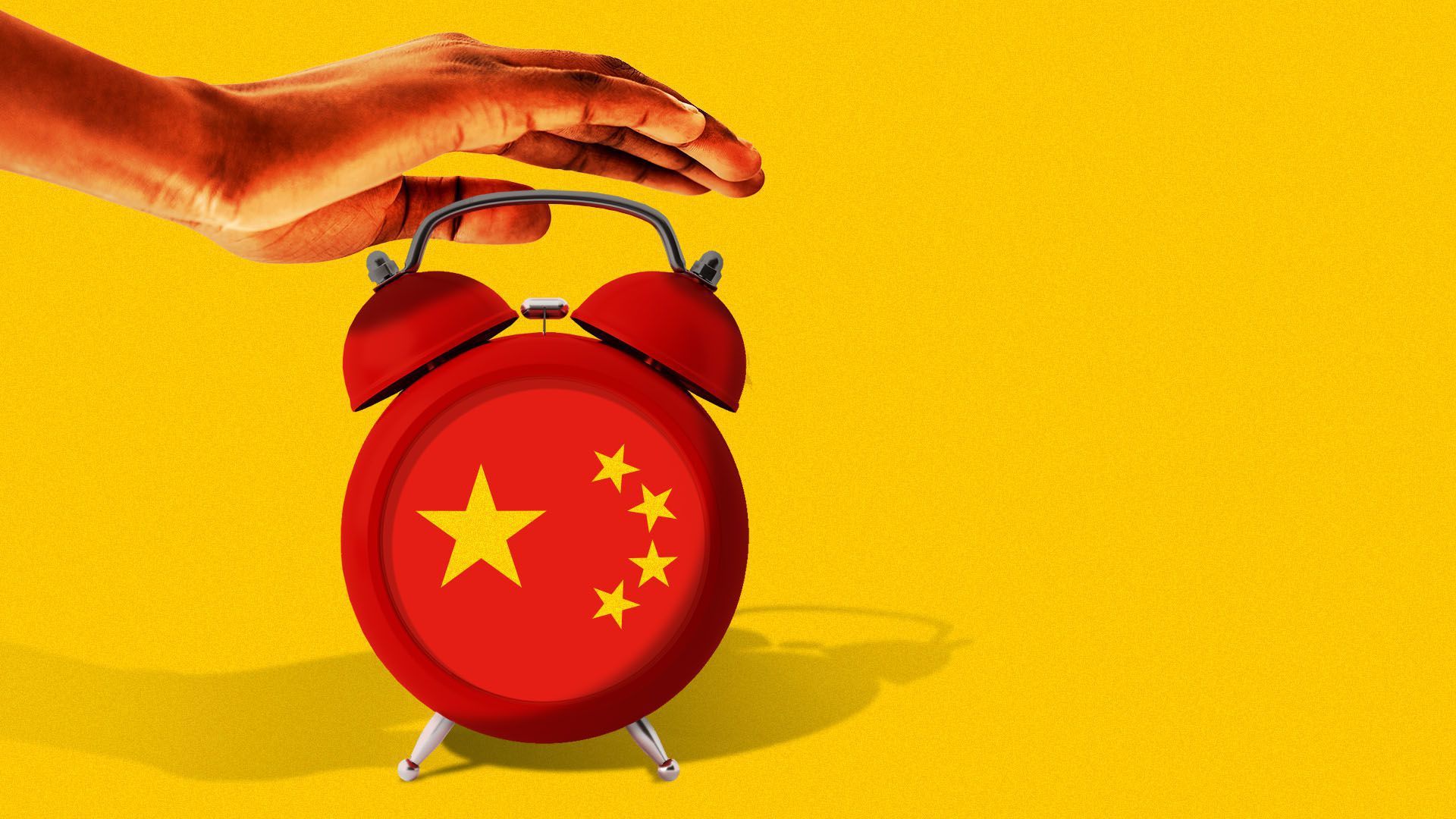U.S.-China trade tensions are escalating again
Add Axios as your preferred source to
see more of our stories on Google.

Illustration: Sarah Grillo/Axios
As the coronavirus pandemic appears to be subsiding in China, it's becoming clear that its targets for the phase one trade deal with the U.S. are unrealistic and there is so far no sign of a plan for renegotiation.
What's happening: White House National Economic Council director Larry Kudlow said Thursday the trade deal was "intact, and China has every intent of implementing it."
- Chinese Premier Li Keqiang said Friday that Beijing plans to "work with the United States to implement the phase one China-U.S. economic and trade agreement."
Background: China agreed to buy $200 billion more in U.S. goods over the next two years than it bought in 2017.
- The deal paused further escalation in tariffs and helped spur bullish sentiment (even though it did not remove many of the already implemented tariffs).
Yes, but: While China has significantly stepped up its purchases of U.S. agriculture products so far this year, including corn, soybeans, wheat and cotton, it is far from the pace necessary to meet targets for purchases overall.
- Thanks in large part to the pandemic shuttering much of its economy for two months, Chinese purchases of U.S. goods are down 23.5% from 2019's levels and China was $21.2 billion behind schedule for the first three months of the year, according to an analysis earlier this month from Panjiva, which is part of S&P Global Market Intelligence.
- The biggest shortfall is in purchases of U.S. energy products, particularly liquefied natural gas, as energy demand has cratered and prices have dropped.
By the numbers: Given the lull in imports during the January–March period, China would need to buy an "impossible" $2.9 billion of energy per month from April to December, Jason Bordoff, a former senior director at the U.S. National Security Council, writes in Foreign Policy.
- "[A]t $30 per barrel (the U.S. government’s projected average price for 2020), that’s equivalent to about 3 million barrels of oil per day, or the total of all U.S. daily crude exports in 2019."
- "That China would buy every last drop of exported U.S. oil is unrealistic enough — but today, that oil is not even available, as U.S. oil exports are projected to fall this year along with the collapse in U.S. shale output, which is projected to drop by roughly one-third over the next year."
One more thing: China also is facing renewed street protests in Hong Kong after passing a controversial national security law that Secretary of State Mike Pompeo called a “death knell” for Hong Kong's autonomy.
- White House National Security Advisor Robert O’Brien said the U.S. is likely to impose sanctions on China if the law is passed.
- China's Foreign Minister Wang Yi warned that some in the U.S. were pushing relations toward a "new Cold War."
Go deeper: Beijing says U.S. should give up "wishful thinking" of changing China
